English Language
English Language
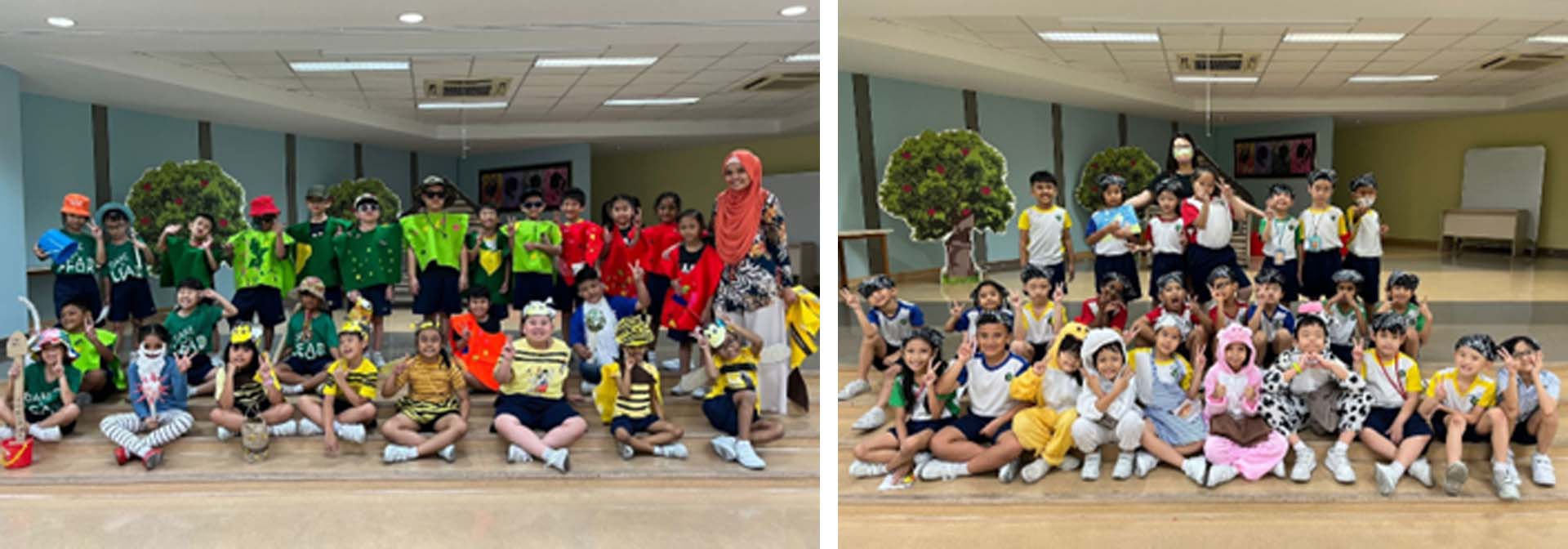
Vision:
An effective, affective and self-directed English Language learner and user
Mission:
To nurture students to be self-directed and empathetic communicators, discerning readers and creative inquirers (EL Syllabus 2020)
Key Approaches:
-
Excite – inculcate the values of language learning and excite students to want to use English Language as a form of communication through authentic experiences and play
-
Engage – involve students in their learning so that they will be active learners and provide reflection checkpoints to develop metacognitive skills
-
Empower – design lessons and programmes such as students have a choice in their own learning. Provide students the autonomy to direct their own learning to develop them into agents of change to lead others.
*Differentiated instructions will be infused through the 3 key approaches above.
Milestone Programmes
1. Self-directed learning through ICT-enabled lessons (Excite and Engage)

Blended learning and technology-enabled lessons allow our students to learn deeply at their own pace, collaborate with peers and still have the autonomy to pursue their areas of interest. Teachers leverage ICT to cater to students with differing readiness, interests and learning styles.
2. Dare to Read (Excite, Engage, and Empower)
-
Read today, lead tomorrow. Believing that reading is fundamental to language acquisition, the department builds a culture of reading through Dare to Read, a whole-school approach to reading. (Engage and Empower)
-
Relevant, authentic and personal learning experiences through the discussion of contemporary, environmental and sustainability issues so as to take action and effect change (Excite and Empower)
The school’s Media Resource Library, D’ Safari, reaches out to students through a wide variety of programmes and activities. Parents, grandparents and siblings can also join in the fun with students in some of our programmes which are specially designed to promote bonding and fun.
Avid Reader Card
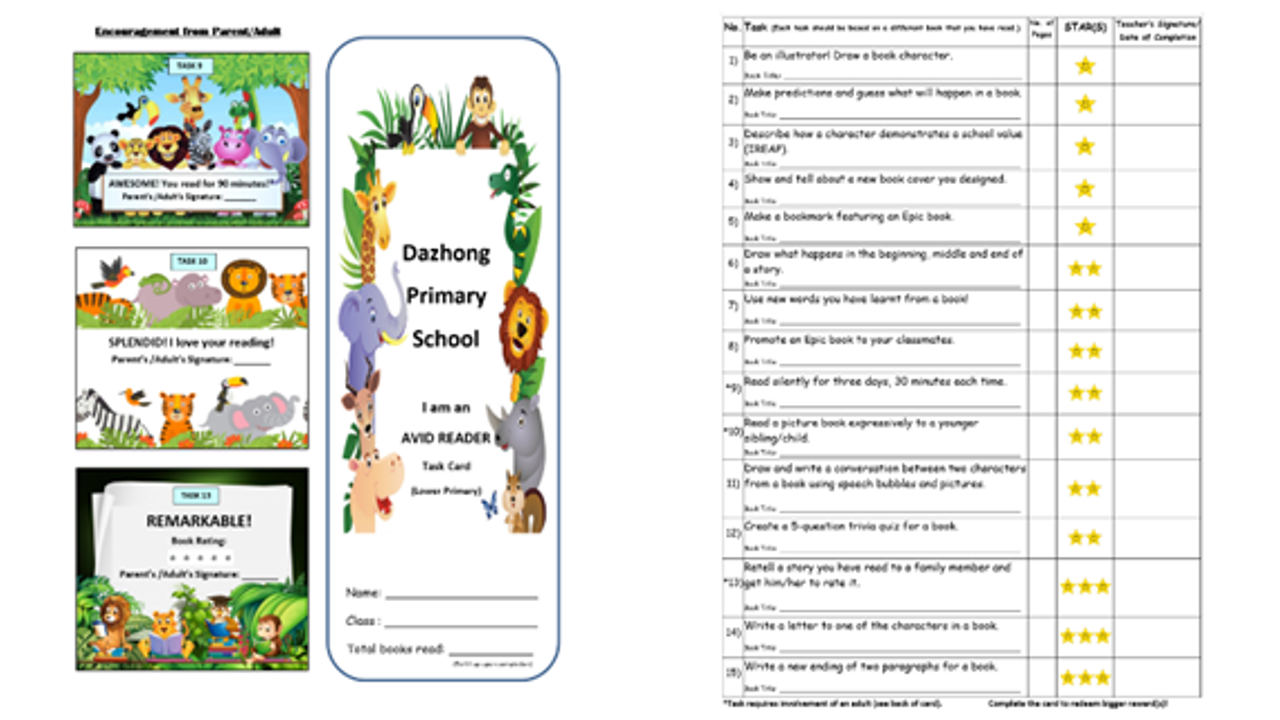
Taking inspiration from the popular Young Scientist Card, the Avid Reader Card was introduced to stimulate an interest in reading and nurture a love of reading. Comprising a series of self-directed tasks designed for Lower and Upper Primary students, each completed task earns students stars, which may be redeemed for a reading reward at D’Safari. A compilation of the best work is showcased termly.
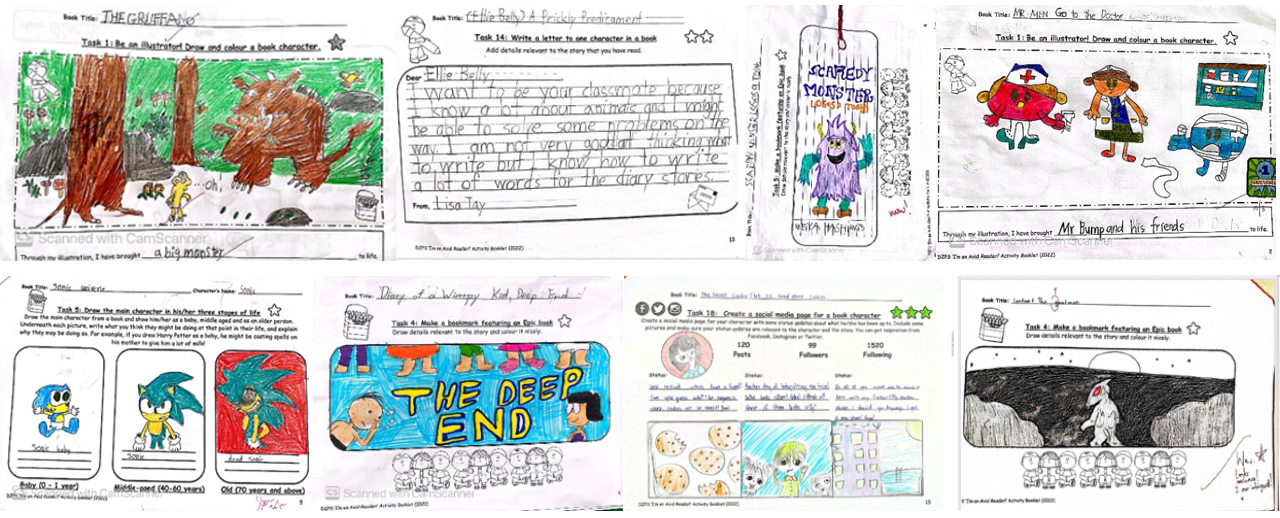
Dare to Read (SLS)

Tapping on the affordances of the Student Learning Space (SLS) and other ICT tools, the Library Team curates digital stories recorded by teachers and students and assigns “lessons” to students through the English Language teachers. In these lessons, students view book recommendations by Dazhong teachers, listen to stories read by teachers and schoolmates and complete quizzes and activities based on the featured stories.
Devices in the Library for Reading and Learning
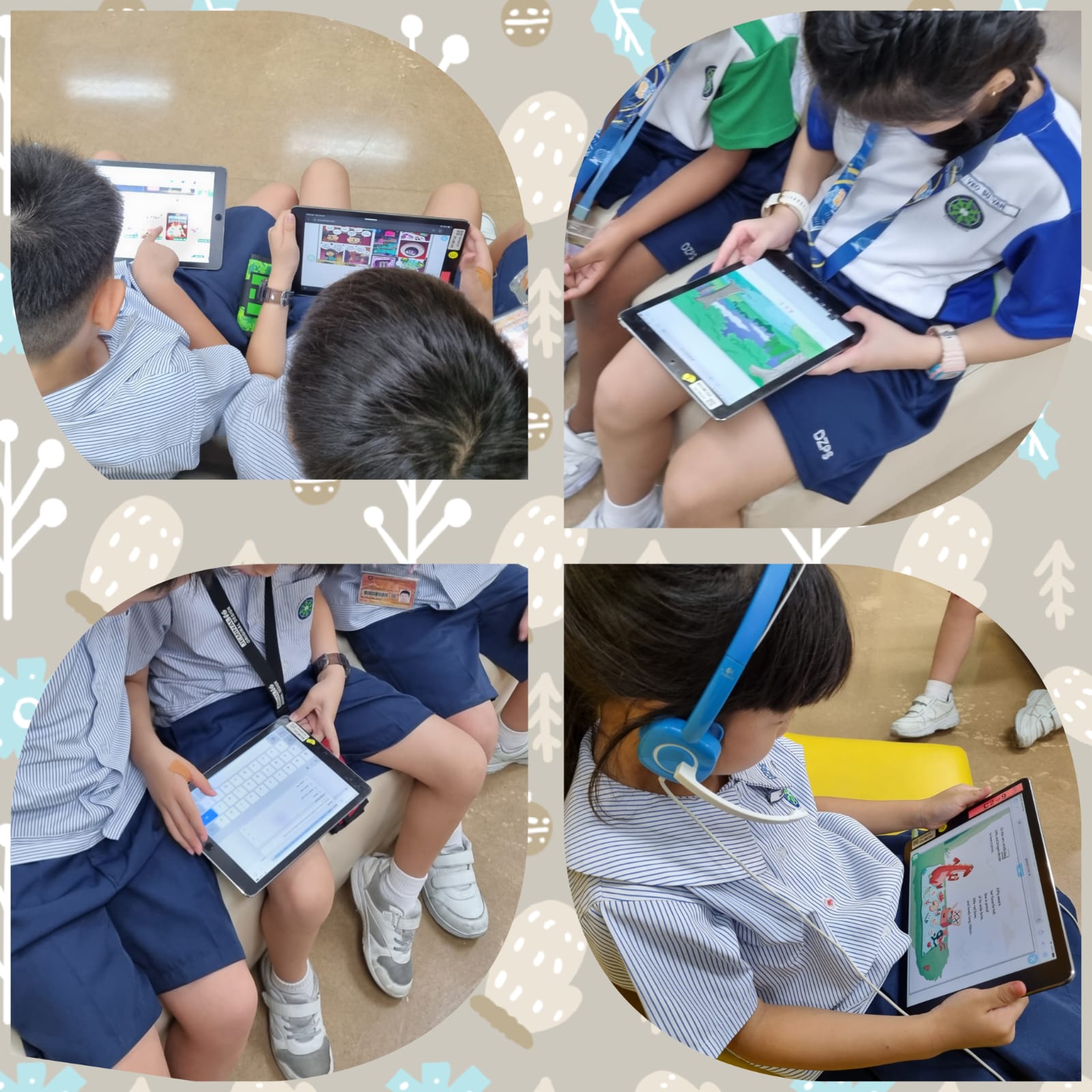
Our school library is a vibrant hub of activity during recess, with students eagerly delving into the world of audiobooks. To support auditory learning and enhance our students' reading experiences, our library offers devices for students to use during recess.
Thematic Book Display
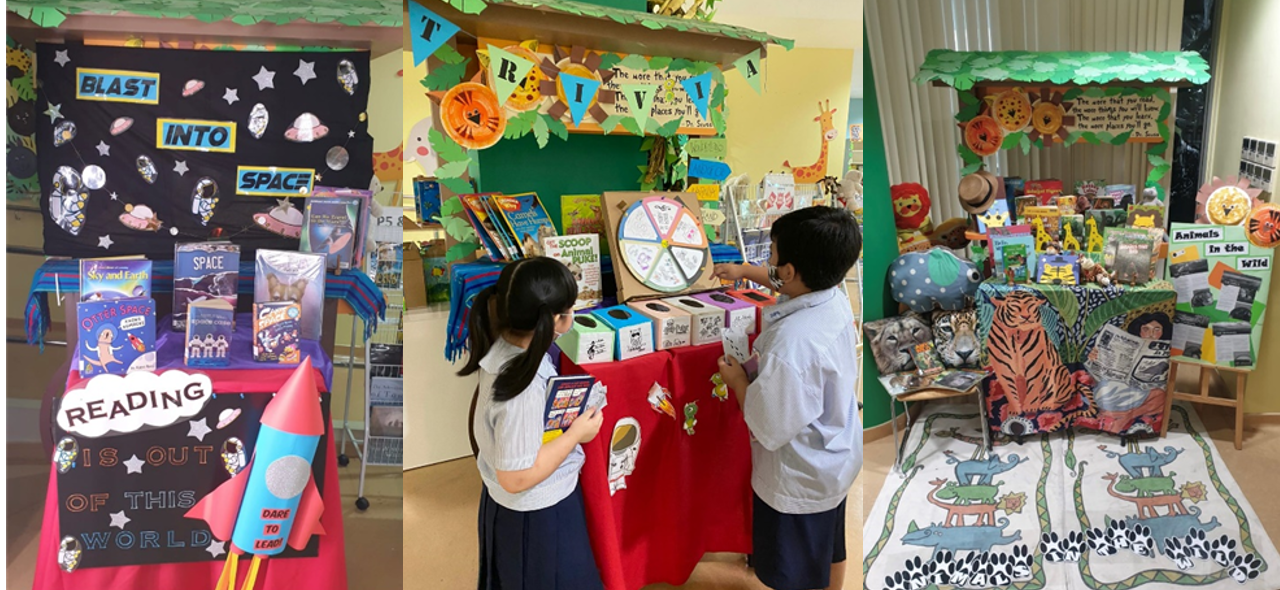
Every month, the book display is refreshed to feature the school’s wide collection of books. Besides having selected books on display, there are also theme-based activity sheets. Students turn in completed sheets for a small reading token.
Author of the Month Display
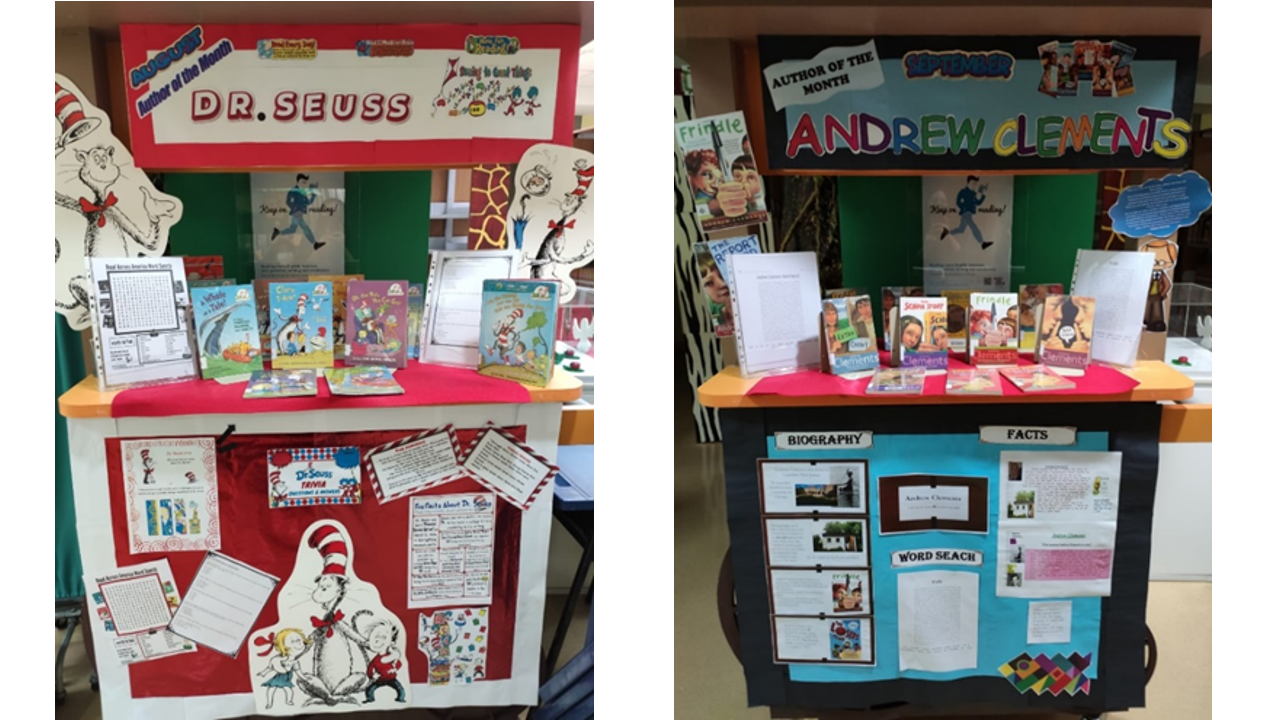
The library showcases a different author every month. Students read biographies about writers and learn what sparked an interest in writing. Hopefully, they get inspired to write a short story or two!
Blind Date with a Book
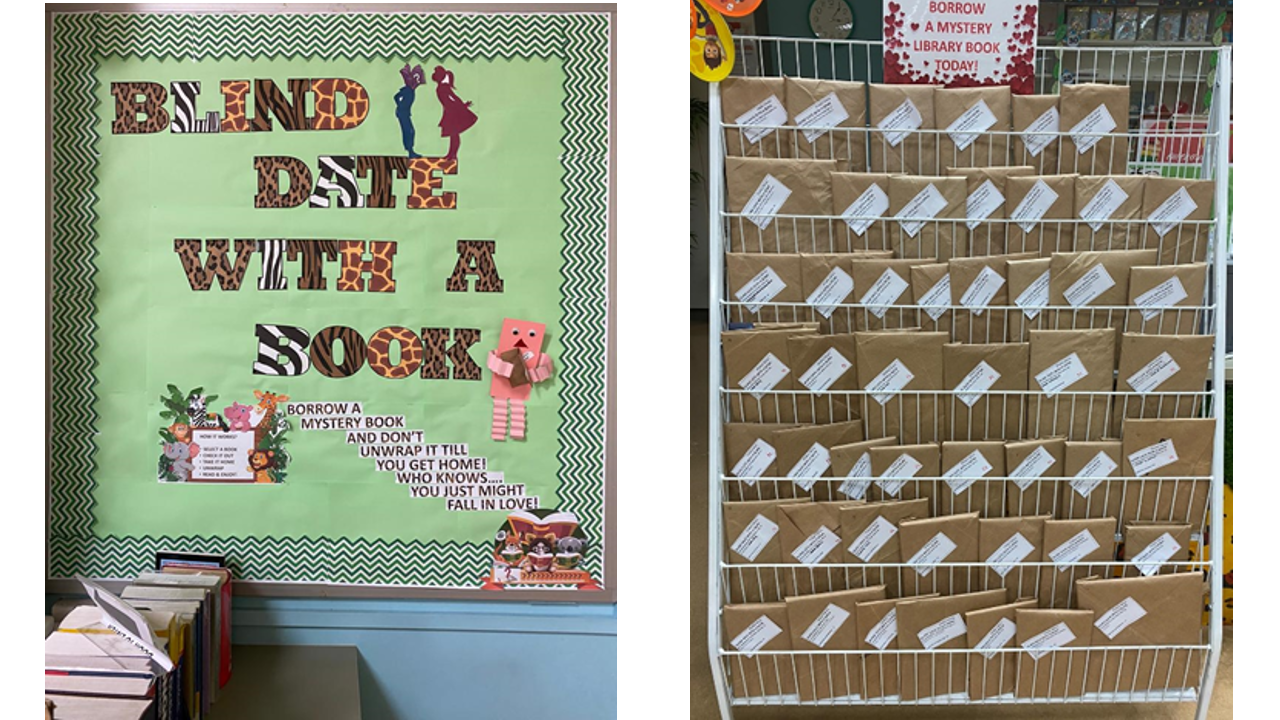
Don’t judge a book by its cover! Wrapped with recycled paper, students borrow age-appropriate mystery books that are tagged with clues.
Supporting Your Child in Reading
3. Stories Come Alive (Excite, Engage and Empower)

To commemorate World Book Day, well-loved book characters from around the world gather at Dazhong Primary School every year to inspire the love of reading in Stories Come Alive! As concerned citizens, our students and staff endeavour to put on their Green Maker hats and create their costumes using recycled materials. Students also come together to share about their favourite books and encourage their peers to read!
4. Programme for Active Learning (PAL) – Dare to Act (Excite and Engage)

Through the P1 and P2 Speech and Drama PAL Module, students are inspired to develop a love for the English Language as they learn to express their thoughts and ideas confidently and effectively. The programme is taught by our very own English Language teachers who strive to bring well-loved STELLAR big book titles to life and introduce students to basic drama skills. Students, through drama, learn to communicate ideas through discussion and group work and foster commitment and co-operation amongst their peers
Stretch Programmes
1. Students Talk about News at Dazhong (STAND) (Empower)
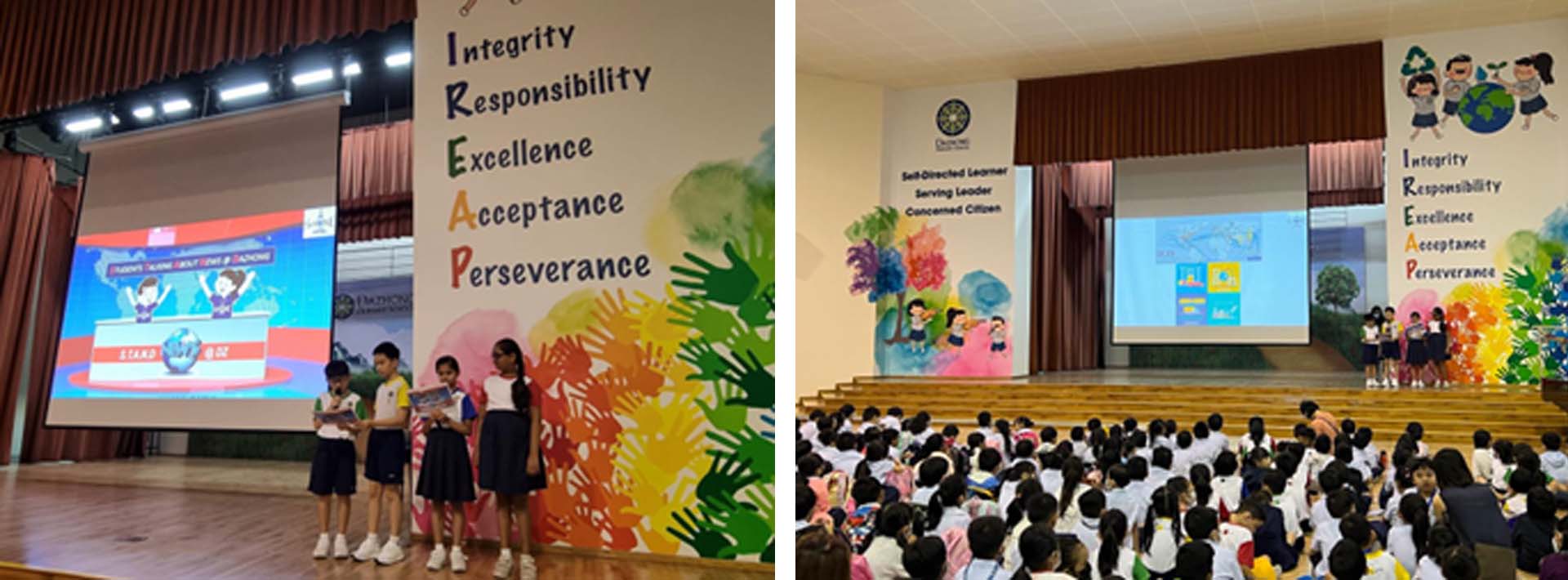
To develop empathetic communicators, every fortnight, the school tunes into STAND during morning assembly. Students are challenged to think critically about what they see or hear in the news and report the latest and most inspiring news happening in Singapore and around the world. Students acquire general knowledge and vocabulary, honing their listening and comprehension skills whilst being inspired to create a better Singapore.
2. Reading Circles
The Reading Circles programme for selected students in Primary 4 and 5 focuses on cognitive, affective, and social outcomes. Participants will develop an understanding of active reading and inquiry, recognizing that reading involves constructing meaning, making connections, and engaging in reflective responses. They will learn to consider elements in texts and the writer’s purpose, and to develop awareness of language use and context. Skills acquired include questioning texts, making connections to personal experiences and real-world issues, inferring meaning, and engaging in discussions. Affective outcomes include enjoying responses to texts, developing empathy, and applying understandings to their own lives. Socially, students will set learning goals, manage their learning, collaborate with others, and appreciate diverse perspectives. The programme fosters curiosity, perseverance, and confident communication.
Support Programmes
1. Learning Support Programme (LSP)
The LSP for English provides specialised early intervention for students who need additional help with English language skills. Identified at Primary 1 through screening conducted upon school entry, these students receive focused support from trained teachers. The programme involves half-hour daily sessions conducted in small groups of 8 to 10 students, ensuring personalised attention and effective learning outcomes.
2. Reading Remediation Programme (RRP)
Our school provides the RRP to support Primary 3 and 4 students with literacy difficulties who are not diagnosed with dyslexia. RRP aims to help these students read with fluency and understanding, and includes those who were not previously in the Learning Support Programme (LSP) but are assessed to benefit from additional support at the end of Primary 2.
3. School-based Dyslexia Remediation (SDR) Programme
We offer the SDR Programme, a specialised and intensive after-school literacy intervention for Primary 3 and 4 students with dyslexia. This two-year programme, taught by specially trained teachers, focuses on phonics, word reading and spelling, text reading fluency, vocabulary, and reading comprehension to address individual literacy needs.

